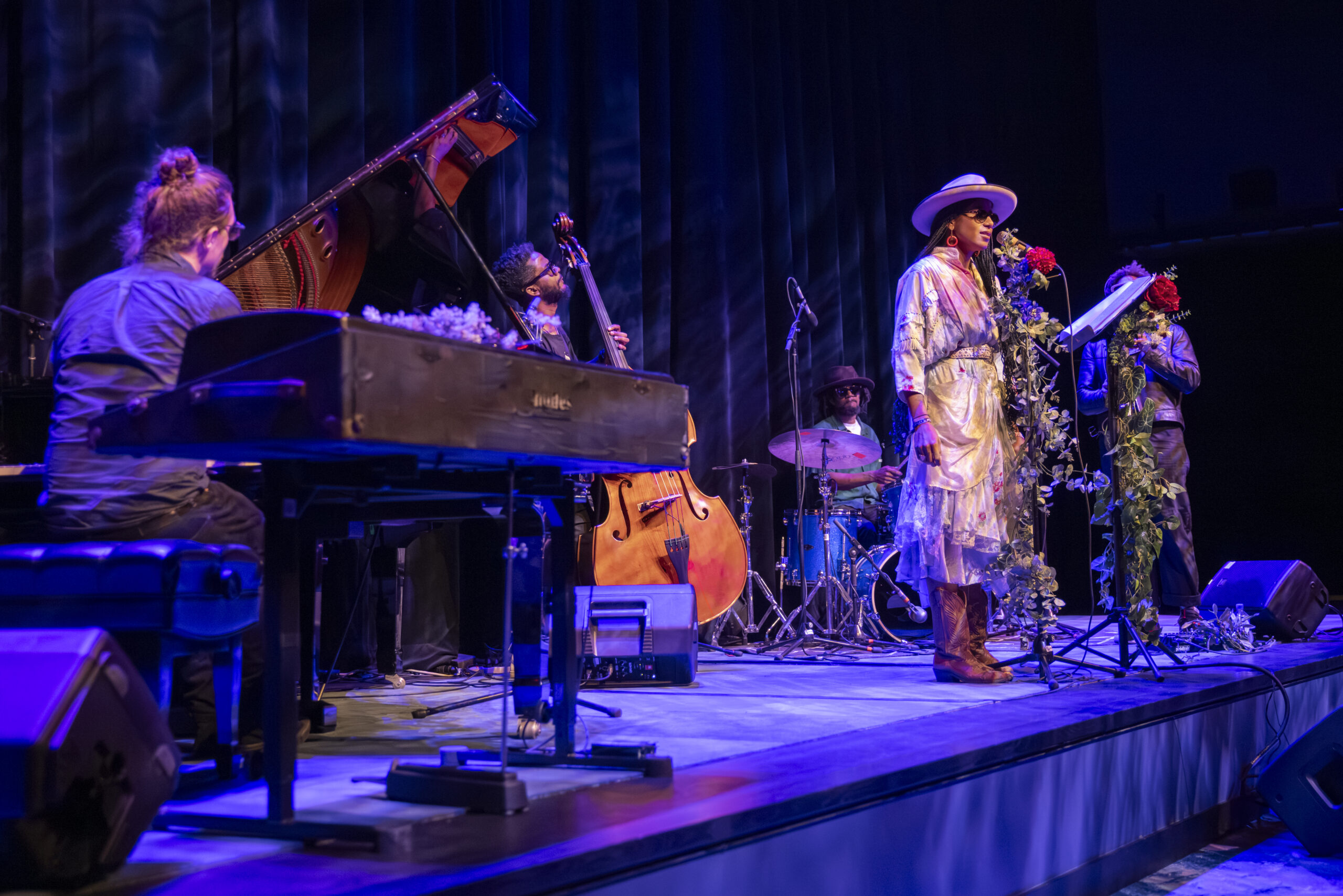Aja Monet is a Grammy Award nominated surrealist blues poet who visited SCAD for a private workshop and a performance in early October. She has released multiple collections of her poetry that surround Black resistance, love, and the inexhaustible quest for joy. Her style of poetry is very unique and takes heavy reference from soul music and old spoken word stories.
Monet studied writing in college, but crossed paths with many other mediums as well. She explained how one art form helped deepen her understanding of others. Art forms are just additional ways to describe what we are seeing and feeling. Poetry has been around for thousands of years and each culture molds it into something new and different. But nowadays literature is taught through definitions and the same famous examples which lose the underlying emotive qualities that are so important to poetry. When it is spoken there are additional qualities that make the poem become more than just a series of words. The way emphasis and articulation are distributed creates a cadence that adds a whole new layer of meaning to the experience of hearing poetry.
The workshop involved less than twenty people so we moved some chairs around so we sat in small circle. It was a very intimate workshop that involved more discussion than one way lecture. She spoke about her experience in school. her inspirations to writing, as well as just her overall thoughts about society and how it impacts the world of artists.
During the workshop Monet had us participate in a very strange exercise to work on descriptive writing. She started by explaining how writing can be made more immersive by adding more sensory details. If you are describing a room don’t only mention the way it looks, include what it smells like, how the air feels, what does it sound like, is anyone else there, etc. She had us all get out something to write with and something to write on, physical mediums only, and then prompted us to write about a time something didn’t go the way we wanted it to and how we wish it would have gone. The catch was that we couldn’t look at what we were writing. We had to just write and keep writing until she told us time was up. We were supposed to put the reader into our exact situation and let the descriptions of physical and emotional details flow directly from us and our experience straight onto the page.
The logic behind this exercise was that when we experience really physically or emotionally intense things, a lot of times our brain starts filtering the information before we can fully process it. We start thinking and convincing ourselves of things as they happen before we even get a chance to unpack all the raw information. She suggested that when we feel those strong emotions, to give yourself the time and the space to let that authentic information linger where you can feel it and dig into it, before you start telling yourself how you should be thinking or feeling instead.
Monet has a really beautiful way of discussing emotions because of her background as a descriptive writer, but she said that “everyone turns into a poet when they fall in love” meaning that people get better about describing those complicated emotions when they feel them at an overwhelming degree. I think she has a point about this because it gets easier to dig into thoughts and feelings when we experience them at a high level. When they linger for a while we have more chance to experience them and live with them and understand why there are there, which in turn helps us be able to explain that to others.
Overall this workshop was a lot more interesting than I expected, and Monet’s way of speaking really resonated with me. I enjoy hearing artists speak about capturing emotions and other hard to define qualities because I think there is something inherently shared between creative people that allow us to understand these things not necessarily better, but just differently than non-artistic people. I hope SCAD will continue offering opportunities for smaller workshops with the creatives they bring in.


